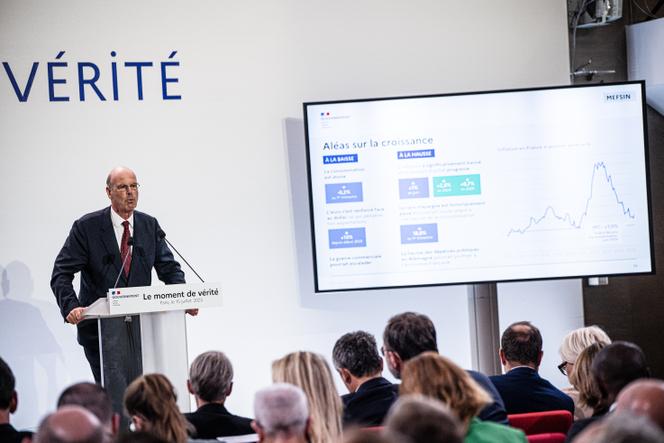


Could restoring France's public finances derail its economic growth? Prime Minister François Bayrou's plan to lower the public budget back to 4.6% of the country's gross domestic product (GDP) in 2026 heralds a major economic shock. The French economy is already fragile, and forecasts predict growth will not exceed 0.7% in 2025 and only reach 1.2% in 2026, according to the Finance Ministry. Yet the prime minister's announcements have changed the situation, as his measures will impact both household demand and public spending, while sparing businesses.
"The scale and duration of the planned budgetary consolidation would be unprecedented, particularly outside a period of crisis recovery or robust growth," wrote Hadrien Camatte and Emilie Gorguet, economists at the investment bank NATIXIS, in an analysis on the subject. "The measures planned to cut spending are very ambitious, while some projections of increased tax revenue seem overly optimistic – particularly those based on combating tax and welfare fraud."
Specifically, the government has planned total savings of €43.8 billion for 2026: €20.8 billion in spending cuts (distributed across the state budget, government institutions, local authorities and the social welfare system), €15.9 billion in new revenue and taxes (including €2.3 billion from anti-fraud measures), and €7.1 billion linked to a "blank year," meaning one in which the rates of pensions and social benefits is frozen at 2025 levels rather than adjusted for inflation.
You have 75.99% of this article left to read. The rest is for subscribers only.
